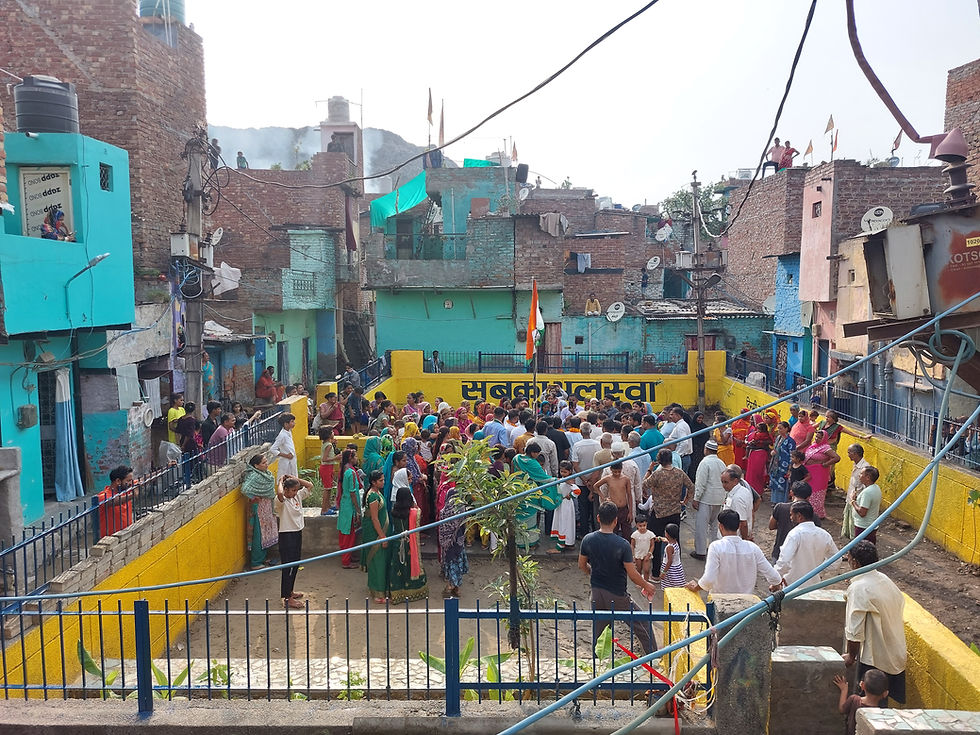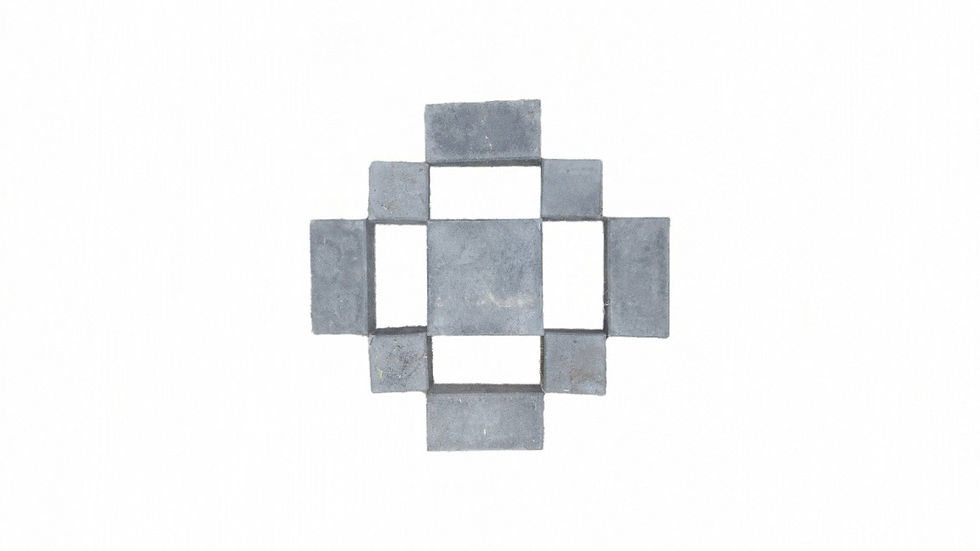Raising the Bar on Trash: The Bhalswa Open Space Revolution
- Gunraagh Talwar
- Jul 30, 2021
- 2 min read

The living conditions in the communities surrounding Delhi's Bhalswa landfill are the worst in the city. The high densities and lack of amenities in the informal settlements exacerbate the problem. Our on-ground initiative, in collaboration with Ipsita Choudhury, Eish Ahlawat, and Gunraagh Singh Talwar, aims to improve the healthcare and sanitation access of the community by revamping leftover open spaces. This will provide them with dignified open spaces and make Bhalswa a better place to live.
Bhalswa Landfill caters to over half of Delhi's waste, choking the surrounding ecosystem. The area has hazardous AQI levels throughout the year and water pollution levels over thirty times the acceptable values. However, the area is not uninhabited. Over 200,000 people call it home, and they receive minimal support from authorities, leading to a dire situation.
Kalandar Colony, a settlement of 2264 households with densities as high as 2630 people per hectare, is one of the communities abutting the landfill. Of the 13% of the area that is open space, the community cannot maintain the areas between buildings, which end up prone to vandalism and anti-social activity. This unsafe environment prevents certain members of the community, such as women, children, and the elderly, from accessing public amenities such as toilets and healthcare centers, leading to a low turnout.
In the midst of the pandemic, when access to public amenities is crucial, thoughtful interventions in these spaces are essential. The initiative, which includes key stakeholders and a participatory process with the community, aims to create inclusive and dignified public spaces while accelerating access to public amenities.
Revamping open spaces also accelerates access to healthcare and sanitation facilities. Neglect regarding waste management is a governing factor in the current condition of open spaces. Through sensitization and tactical urbanism, the proposal aims to tackle the root cause and motivate the community towards waste segregation and disposal. The construction process also utilizes techniques such as earthbags and salvaged material to create value for the community.
By using frugal means and self-organization, the community can make use of smaller pockets of available open space. Larger pockets, such as spaces around public amenities, are underutilized and poorly maintained. Therefore the team finds it essential to preserve and invigorate these public spaces to foster a dignified life for the community.
The initiative is led by Gunraagh, Ipsita, and Eish, along with Peeyush Yadav and Pradeep Sharma, founders of Ek Nayi Duniya Yuvaon ki Foundation (ENDKYF), and Dr. Neeraj, Mohit, and Vijendra, working at the public healthcare center established for the community. After a year of on-ground work involving community engagement, mobilization, and participatory building, the team has gained invaluable trust and recognition within the community.
Overall, the initiative's goal is to create a healthier and safer environment for the people of Bhalswa. By revamping public open spaces and promoting waste management, the team aims to provide better healthcare and sanitation access to the community while giving them a dignified open space to live and thrive in.



Comments